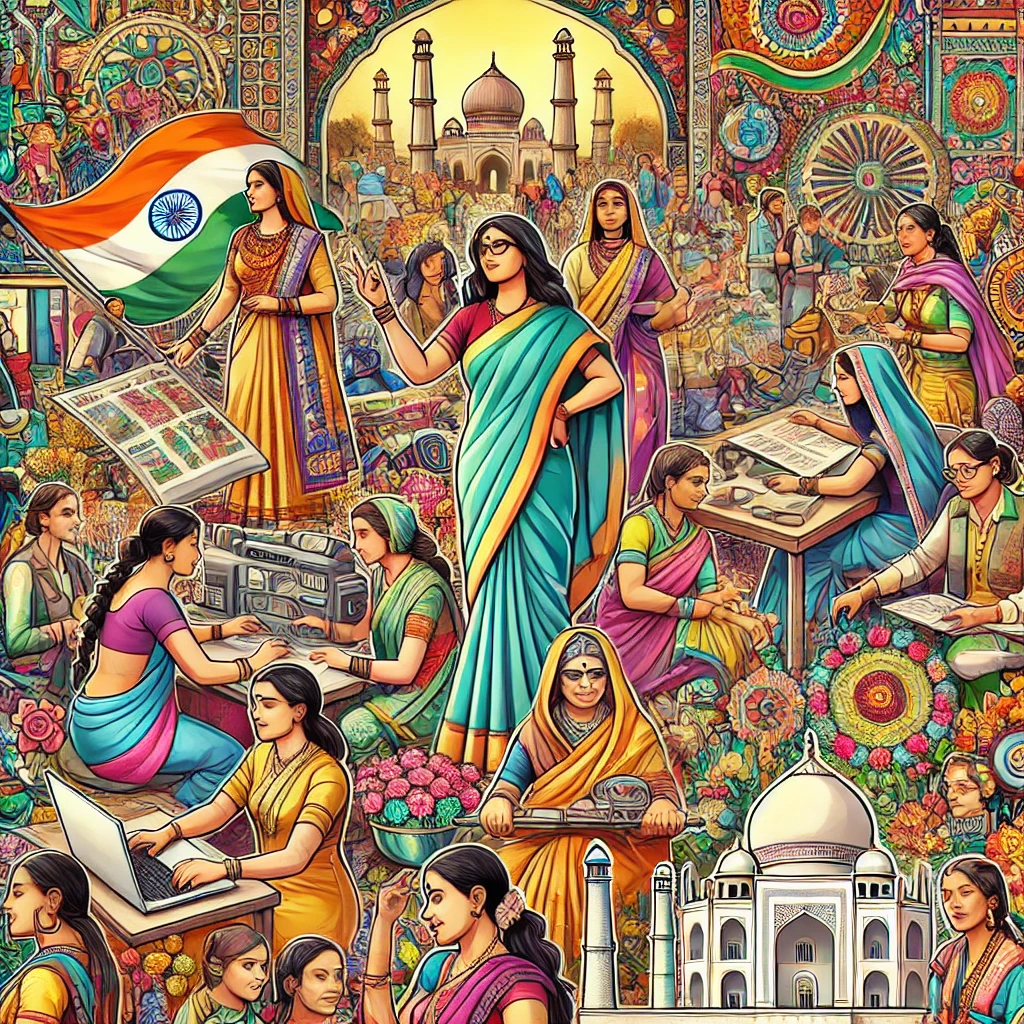India, a land of vibrant diversity and deep-rooted traditions, holds a multifaceted stance when it comes to women and their role in society. While progress has been made in empowering women, a nuanced understanding reveals persistent challenges that continue to impact their lives.

The Cultural Reverence for Women
Indian culture has always placed women on a pedestal, symbolizing them as goddesses, nurturers, and bearers of life. Festivals like Navratri celebrate the divine feminine, while historical figures like Rani Lakshmi bai and Savitribai Phule underscore women’s strength and resilience. These ideals, however, often contrast starkly with everyday realities.
Gender Roles and Expectations
Traditional Indian society tends to impose rigid gender roles. Women are often seen as caretakers of the home, responsible for family well-being. While this role is celebrated, it can limit opportunities for personal and professional growth. Despite advancements in education and employment, societal pressures frequently hinder women from achieving their full potential.
The education of girls has seen remarkable improvement, with literacy rates rising steadily over the years. Programs like Beti Bachao Beti Padhao have encouraged families to prioritize girls’ education. Yet, in many rural and economically disadvantaged areas, barriers such as poverty, early marriage, and lack of access to schools persist.
Education and Employment: A Mixed Picture
Employment remains another domain of concern. Women’s participation in the workforce is significantly lower than men’s, and those who work often face wage disparities, unsafe working conditions, and limited representation in leadership roles. While urban areas see more women in professional sectors, the gender gap is still pronounced.
Social Challenges
Women in India face a spectrum of social challenges that range from subtle discrimination to overt violence. Issues like dowry, domestic violence, sexual harassment, and gender-based violence are grim reminders of the societal changes still required. Movements like #MeToo have brought some of these issues to the forefront, leading to greater awareness and legal reforms. However, the implementation of laws and cultural shifts remains a work in progress.
Changing Mindsets: The Road Ahead
The younger generation and progressive communities are instrumental in redefining gender dynamics. Men and women alike are challenging stereotypes, advocating for equality, and working toward a more inclusive society. Media, education, and grassroots activism play a pivotal role in shaping attitudes and creating a narrative of empowerment.
Empowering Women for a Better Future
Empowerment goes beyond policy changes; it’s about fostering an environment where women feel safe, respected, and valued. Encouraging entrepreneurship, providing skill training, ensuring equal pay, and creating supportive ecosystems are essential steps. Moreover, instilling gender sensitivity from an early age can break the cycle of discrimination.





